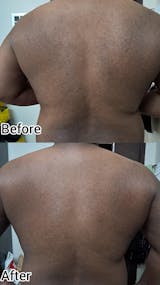Written by Dhatri
Skin is the largest organ in the body, and taking care of it feels like doing an everyday chore. However, regular attention must be provided if one wishes for young and healthy skin. In a skincare regime, there are many steps to be followed to get a complete look. One of the most important routines is moisturising the skin. Hydrating the skin is as essential as hydrating the body.
As we are exposed to pollution and sunlight, the chances of getting skin damage or infections are very high. During these times, the right balance of moisture can reduce the likelihood of skin problems. Moisturising can help the skin to repair itself. Whether it is dry, combination, or oily skin, moisturiser can be incorporated into everyone’s skincare routine.
If these don’t give you the vital reason to add moisturiser to your skincare regime, then take a look at the following article.
What is a moisturiser?
A moisturiser is a lotion, cream, or balm formulated with emollients that help the skin stay hydrated. It hydrates the surface of the skin and protects the skin from environmental irritants. Moisturisers are used to add moisture or to lock moisture into the skin. Moisturizing lotions contain a significant amount of water. It is combined with some oil or wax that traps the water on the skin so that it doesn’t evaporate immediately.
How does moisturiser work?
By acting as an emollient, humectant and occlusive, moisturiser helps to improve skin barrier repair while helping skin to look firmer and healthier. Moisturisers work to lock in and add moisture to the skin. They lock the moisture into the skin, creating a temporary seal. It restores the lost moisture in the outer layer of the skin.
The ideal time to moisturise
Moisturizer should be applied after a shower or exfoliation. It should be applied while the skin is damp, either dry or wet. Moisturiser twice a day or as often as possible. Don’t wait for the skin to dry up. Use it often to nourish the skin, and don’t rub. Just pat or apply gently.
Four reasons to use moisturiser
-
Moisturising reduces skin issues
Moisturising helps to reduce the chances of developing dryness and oiliness. Both are harmful to the skin and cause acne and skin infections. Dry skin can cause acne, redness, and other problems. These are all due to the imbalance of moisture in the skin. If it is dry skin, you should go for an oily cream to hydrate the skin and balance the oil level. If it is oily skin, you should go on with lotion as the oil level in the moisturisers can be lower. To avoid both, use a moisturiser to balance the skin.
-
Moisturising gives a young look
Areas like the face, ears, neck, and chest are very sensitive, and they tend to replace skin more often. The loss of skin in those areas leaves the skin influenced by dryness and the development of skin cancer. Using a moisturiser can help give sensitive skin the boost it needs to repair itself. Moisturizers aid in the replacement of needed skin by leaving healthier skin. It repairs the skin and gives it a youthful look.
-
Moisturising fights against wrinkles
No one likes to see formless skin. By using moisturiser, you can keep the wrinkles at bay until your time comes. The plump feeling after moisturising the face gives your skin a firm appearance and reduces the appearance of facial wrinkles. As the skin becomes dry, the wrinkles begin to appear and give an older look. Applying moisturiser fights off wrinkles and gives a firm appearance.
-
Moisturising conceals blemishes
Using a moisturiser regularly can help camouflage the blemishes. Moisturising tends to give a healthy sheen that evens out the existing blemishes. It may sometimes contain a tint or self-tanner that can work with any skin tone.
Bottom line
Incorporating moisturiser into daily skincare routine provides long term benefits. Moisturising is the fundamental care to maintain smooth, healthy and radiant skin while nourishing the skin. There are many moisturisers available in the market, make sure to get one that works for your skin.
Source:
“Moisturizers: The Slippery Road - PMC.” PubMed Central (PMC), ncbi.nlm.nih.gov, 1 June 2016, ncbi.nlm.nih.gov/pmc/articles/PMC4885180/.
“Moisturizer: Why You May Need It If You Have Acne.” Moisturizer: Why You May Need It If You Have Acne, www.aad.org, https://www.aad.org/public/diseases/acne/skin-care/moisturizer. Accessed 15 May 2022.







 +91 9347578980
+91 9347578980